Do you know Bonolo Monthe, CEO of Maungo Craft in Botswana?
- 30/08/2024
- Posted by: Sandra Borma
- Category: News
No Comments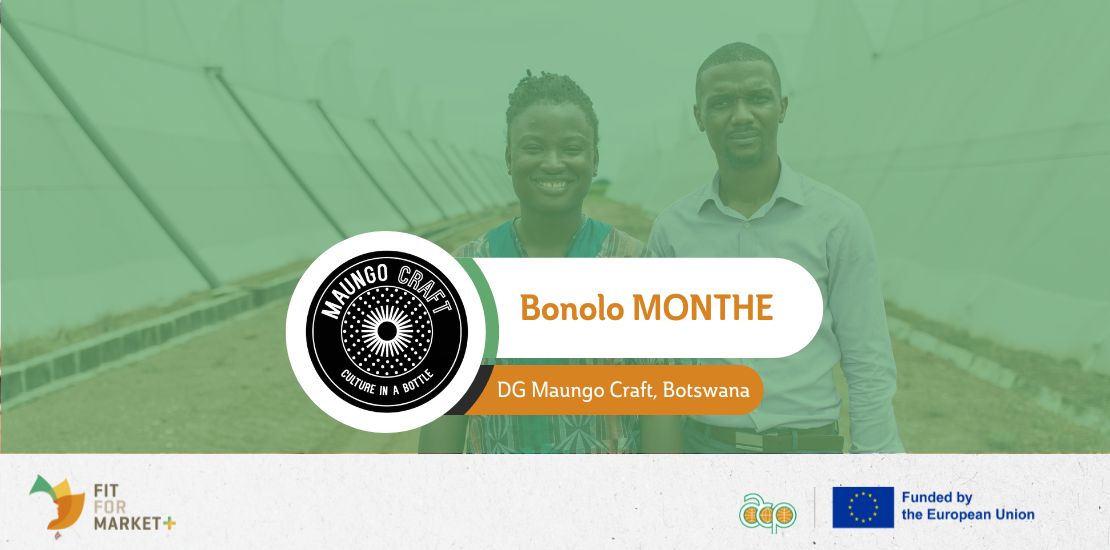 Do you know Bonolo Monthe, CEO of Maungo Craft in Botswana? Bonolo holds an MBC from the David Eccles School of Business at the University of Utah. She has received many awards for her entrepreneurial career in the agri-food sector: UN Food Systems Champion, Mandela Washington Fellow 2019 and Gogettaz Agripreneur Winner 2019. Maungo Craft processes Morula fruit into award-winning, preservative-free preserves, promoting an indigenous fruit industry for sustainable growth. One of Maungo Craft’s aims is to rehabilitate forgotten crops,… +
Do you know Bonolo Monthe, CEO of Maungo Craft in Botswana? Bonolo holds an MBC from the David Eccles School of Business at the University of Utah. She has received many awards for her entrepreneurial career in the agri-food sector: UN Food Systems Champion, Mandela Washington Fellow 2019 and Gogettaz Agripreneur Winner 2019. Maungo Craft processes Morula fruit into award-winning, preservative-free preserves, promoting an indigenous fruit industry for sustainable growth. One of Maungo Craft’s aims is to rehabilitate forgotten crops,… +Launch Workshop for the STDF Project in Senegal
- 03/07/2024
- Posted by: Sandra Borma
- Category: News
 Launch Workshop for the STDF Project in Senegal On 6th June 2024, the new project “Strengthening phytosanitary capacity to promote exports of horticulture products from Senegal” was officially launched in Dakar. Funded by the STDF and implemented by COLEAD, this project aims to strengthen Senegal’s phytosanitary system in partnership with the Senegalese Ministry of Agriculture, represented by the Directorate of Plant Protection. The project, which will last for three years, revolves around four main areas: Revising the legal framework,… +
Launch Workshop for the STDF Project in Senegal On 6th June 2024, the new project “Strengthening phytosanitary capacity to promote exports of horticulture products from Senegal” was officially launched in Dakar. Funded by the STDF and implemented by COLEAD, this project aims to strengthen Senegal’s phytosanitary system in partnership with the Senegalese Ministry of Agriculture, represented by the Directorate of Plant Protection. The project, which will last for three years, revolves around four main areas: Revising the legal framework,… +COLEAD’s first development project in São Tomé and Príncipe (coco value chain)
- 02/07/2024
- Posted by: Sandra Borma
- Category: News
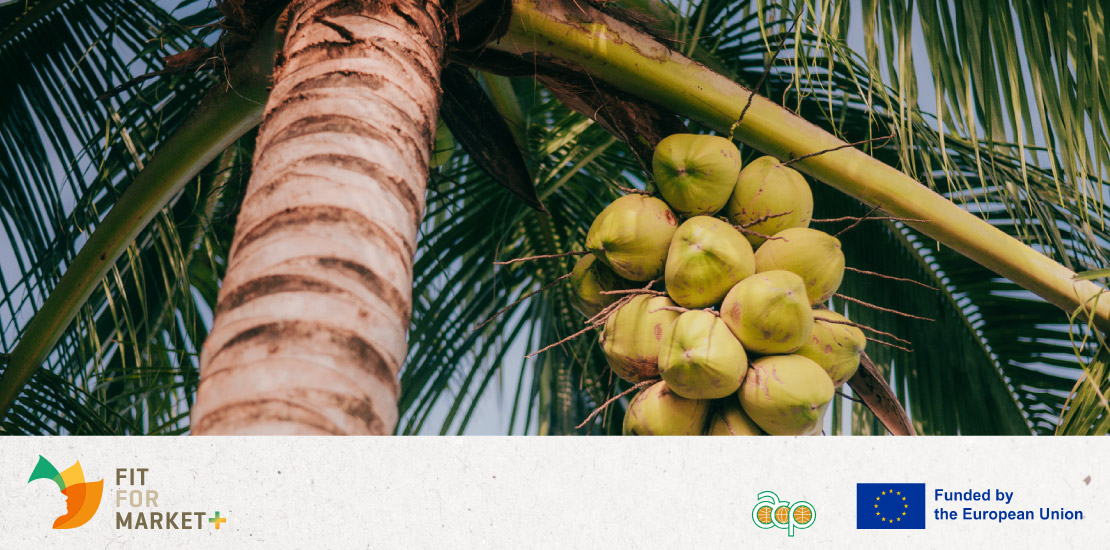 COLEAD’s first development project in São Tomé and Príncipe (coco value chain). Following a meeting with VALUDO at Biofach, COLEAD received its first application for support from São Tomé and Príncipe through the FFM+ programme in 2023. This project is an important step for COLEAD in its commitment to support sustainable agri-food systems in ACP (Africa, Caribbean and Pacific) countries. Following a Sustainability Assessment (SAS) to identify key challenges and gaps, a tailor-made action plan was developed to benefit… +
COLEAD’s first development project in São Tomé and Príncipe (coco value chain). Following a meeting with VALUDO at Biofach, COLEAD received its first application for support from São Tomé and Príncipe through the FFM+ programme in 2023. This project is an important step for COLEAD in its commitment to support sustainable agri-food systems in ACP (Africa, Caribbean and Pacific) countries. Following a Sustainability Assessment (SAS) to identify key challenges and gaps, a tailor-made action plan was developed to benefit… +2023 DeSIRA Global Annual Report
- 10/06/2024
- Posted by: Sandra Borma
- Category: News
 2023 DeSIRA Global Annual Report The Development Smart Innovation through Research in Agriculture (DeSIRA) Initiative, supported by the European Commission (DG INTPA), supports research and innovation (R&I) projects in low and middle-income countries in Africa, Asia and Latin America through 68 projects (2019-2025). DeSIRA encourages a climate-relevant, productive and sustainable transformation of agriculture and food systems by adopting climate-smart and agroecological innovations through multi-stakeholder collaboration, and capacity development at individual and organisational levels to promote innovation. COLEAD is the… +
2023 DeSIRA Global Annual Report The Development Smart Innovation through Research in Agriculture (DeSIRA) Initiative, supported by the European Commission (DG INTPA), supports research and innovation (R&I) projects in low and middle-income countries in Africa, Asia and Latin America through 68 projects (2019-2025). DeSIRA encourages a climate-relevant, productive and sustainable transformation of agriculture and food systems by adopting climate-smart and agroecological innovations through multi-stakeholder collaboration, and capacity development at individual and organisational levels to promote innovation. COLEAD is the… +Philippines–EU fisheries trade: EU market access today and tomorrow
- 10/04/2024
- Posted by: Sandra Borma
- Category: News
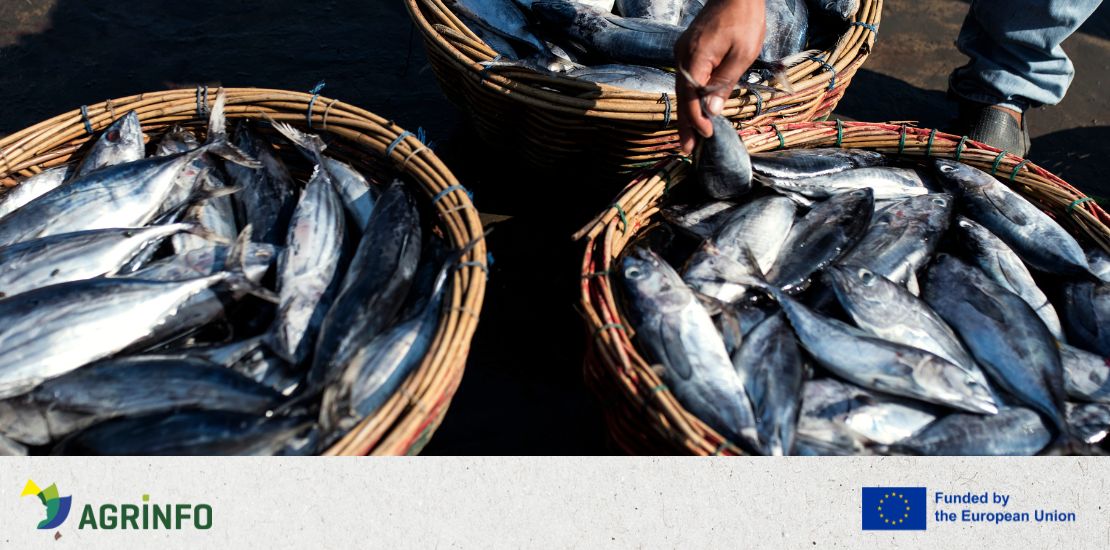 Philippines–EU fisheries trade: EU market access today and tomorrow On 19 March a timely webinar for the Philippines fish and seafood sector was held just as trade negotiations resumed between the Philippines and the European Union. The webinar, organised by the AGRINFO programme along with the Philippine Embassy in Brussels and the Bureau of Fisheries and Aquatic Resources (BFAR), focused on the the world’s biggest single market for fish and fishery products – the EU market. Pablito Mendoza, Deputy… +
Philippines–EU fisheries trade: EU market access today and tomorrow On 19 March a timely webinar for the Philippines fish and seafood sector was held just as trade negotiations resumed between the Philippines and the European Union. The webinar, organised by the AGRINFO programme along with the Philippine Embassy in Brussels and the Bureau of Fisheries and Aquatic Resources (BFAR), focused on the the world’s biggest single market for fish and fishery products – the EU market. Pablito Mendoza, Deputy… +Developing colead’s training offer for local markets
- 07/03/2024
- Posted by: Sandra Borma
- Category: News
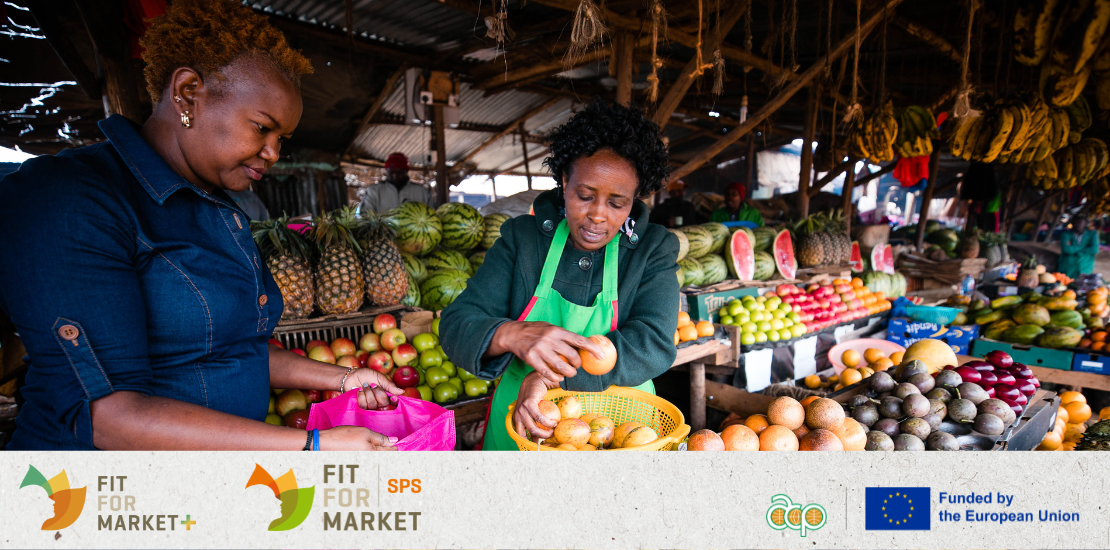 … +
… +Webinar on European Regulations for Madagascar
- 02/02/2024
- Posted by: Sandra Borma
- Category: News
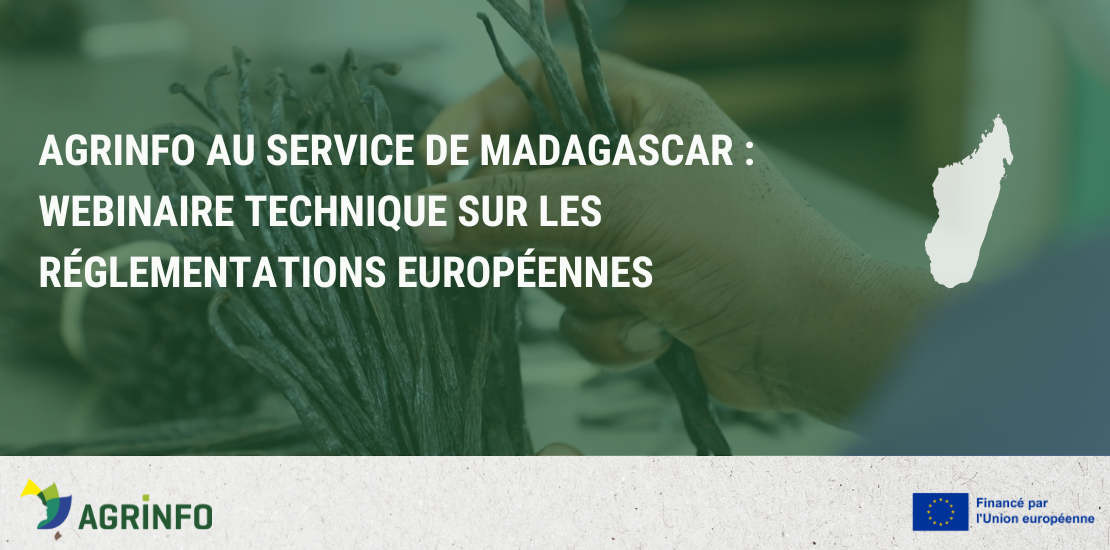 COLEAD recently organised a technical webinar at the request of MINAE (Ministry of Agriculture and Livestock) in collaboration with the Embassy of Madagascar in Brussels. The aim was to shed light on European regulations and alignment procedures for Madagascan companies. The main topics covered were: the process for adopting new European regulations how to participate in public consultations the impacts on Madagascar’s agri-food sectors coordinating stakeholders for effective public–private dialogue monitoring tools. The webinar attracted more than 80 participants from… +
COLEAD recently organised a technical webinar at the request of MINAE (Ministry of Agriculture and Livestock) in collaboration with the Embassy of Madagascar in Brussels. The aim was to shed light on European regulations and alignment procedures for Madagascan companies. The main topics covered were: the process for adopting new European regulations how to participate in public consultations the impacts on Madagascar’s agri-food sectors coordinating stakeholders for effective public–private dialogue monitoring tools. The webinar attracted more than 80 participants from… +Digital technology and strategic partnerships for vocational training in sustainable agriculture
- 29/01/2024
- Posted by: Sandra Borma
- Category: News
 Highlighting the IPPC (FAO) COLEAD collaboration in SPS e-learning. The International Plant Protection Convention (IPPC) is a multilateral treaty for international cooperation in plant protection. The Convention has 182 signatories. Countries wishing to become contracting parties to the IPPC should send their instruments of accession to the Director-General of the FAO. The IPPC aims to ensure coordinated and effective action to prevent and control the introduction and spread of organisms harmful to plants and plant products. This is achieved… +
Highlighting the IPPC (FAO) COLEAD collaboration in SPS e-learning. The International Plant Protection Convention (IPPC) is a multilateral treaty for international cooperation in plant protection. The Convention has 182 signatories. Countries wishing to become contracting parties to the IPPC should send their instruments of accession to the Director-General of the FAO. The IPPC aims to ensure coordinated and effective action to prevent and control the introduction and spread of organisms harmful to plants and plant products. This is achieved… +Agrinnovators.org: for and by innovative entrepreneurs in Africa
- 07/12/2023
- Posted by: Sandra Borma
- Category: News
 We are delighted to announce the launch of Agrinnovators, a platform for African entrepreneurs passionate about innovation and sustainability in the agri-food sector. This initiative is a collaboration between COLEAD and PAFO. The Agrinnovators blog will feature stories, insights, and tips from successful agripreneurs who are transforming the food system in Africa through their creativity, resilience, and vision. It will also showcase the latest trends, technologies, and opportunities in the agri-food sector, such as urban agriculture, vertical farming, circular economy,… +
We are delighted to announce the launch of Agrinnovators, a platform for African entrepreneurs passionate about innovation and sustainability in the agri-food sector. This initiative is a collaboration between COLEAD and PAFO. The Agrinnovators blog will feature stories, insights, and tips from successful agripreneurs who are transforming the food system in Africa through their creativity, resilience, and vision. It will also showcase the latest trends, technologies, and opportunities in the agri-food sector, such as urban agriculture, vertical farming, circular economy,… +“Access to finance for agripreneurs”: a COLEAD department enabling partner-beneficiaries to reach the maturity required to fund their projects
- 07/12/2023
- Posted by: Sandra Borma
- Category: News
 Access to finance for micro, small, and medium-sized enterprises (MSMEs) is a significant obstacle to the development of inclusive and sustainable agricultural and food sectors, especially in vulnerable and high-potential countries such as Sub-Saharan African countries. For over 20 years, COLEAD has been actively involved in this area, despite it not being originally part of the priority intervention themes of the programmes, which were more focused on strengthening the technical capacities of operators in agricultural practices and market access. These… +
Access to finance for micro, small, and medium-sized enterprises (MSMEs) is a significant obstacle to the development of inclusive and sustainable agricultural and food sectors, especially in vulnerable and high-potential countries such as Sub-Saharan African countries. For over 20 years, COLEAD has been actively involved in this area, despite it not being originally part of the priority intervention themes of the programmes, which were more focused on strengthening the technical capacities of operators in agricultural practices and market access. These… +
